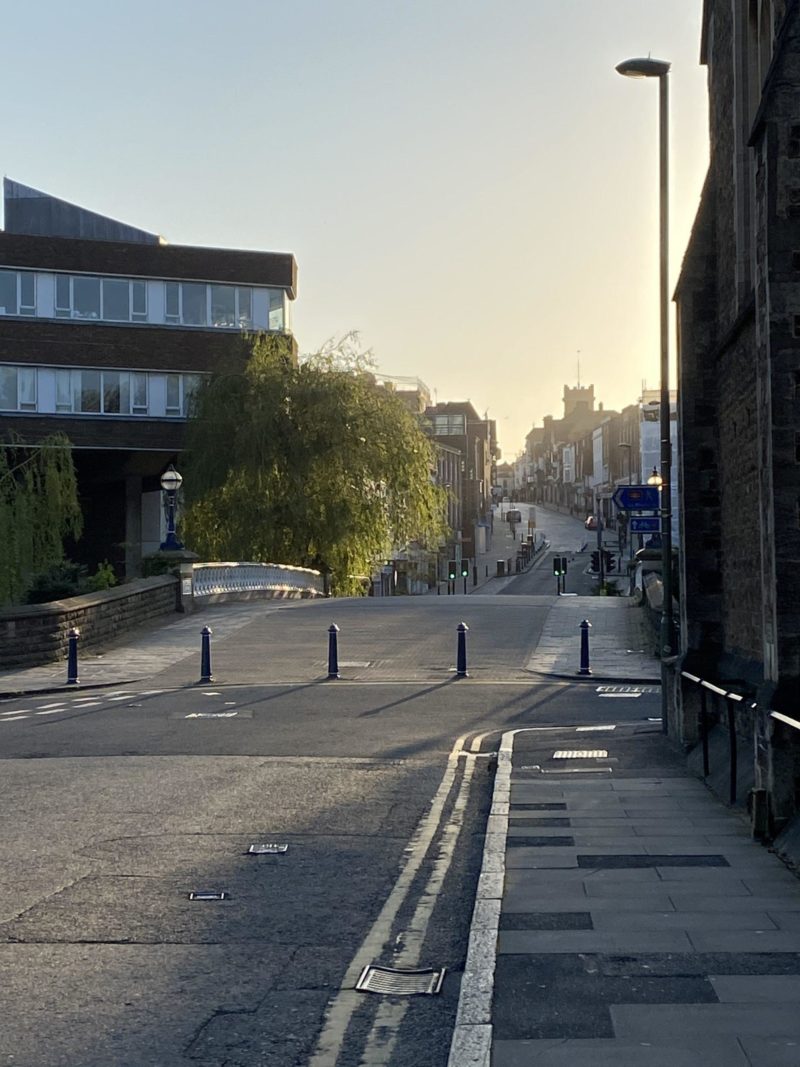Guildford Labour Party It's time for Labour in Guildford
In 1981, British two-tone band The Specials released their number one single ‘Ghost Town’. At the time it was inspired by the frustrations around spiralling unemployment, racial tension and urban decay occurring under the Conservative government. These days, with the pandemic-prompted lockdown, the song has a renewed sense of relevance. The government lockdown has forced life as we know it to be postponed and has thus produced ghost town scenes across the world, from Piccadilly Circus to Times Square. But what about as the lockdown relaxes? The ghost town feel will not be lifted so easily in the market squares and high streets that have been struggling long before Covid-19 came along.
While many high street shops were already struggling, the government’s slow response to giving small businesses and the self-employed financial assistance will undoubtedly have been the final nail in the coffin for many shopkeepers. The brutal cuts and austerity, high business rates, fragmented transport, the rising cost of living and online shopping monopolies like Amazon have made town centre trading exceptionally difficult in recent years. The sight of boarded up windows and ‘To Let’ signs blighting the heart and soul of communities is no longer unique to post-industrial northern towns; it is now all too common in the affluent market towns of the South East.
Shops of all kinds will have to put in measures post-lockdown in order to instil customer confidence. While socially distant queues and one-way systems may be a straightforward operation in a supermarket, many small high street businesses do not have the capacity for such measures. If the customer does not feel safe to shop in certain businesses, shops will struggle to remain open.
The Labour Party must stand firmly behind the small businesses that give life to our high streets. We advocate for grants and flexibilities for new businesses, helping get them off the ground. We want to radically reduce business rents and rates. Councils for many years have been unimaginative when it comes to helping small businesses and developing town centres – Labour can bring these ideas forward. After Covid-19, we have to reimagine what a high street, market square or city centre is in the age of online shopping. A vibrant high street should be a place of consumerism and culture: entertainment, community events, small businesses, civic engagement – a place that shows the best of a community. Camden Market and the Brighton Laines come to mind – now iconic shopping districts at the heart of their respective communities.
We cannot for certain predict how retail will fair once the shops reopen. Job losses, continued risk of infection and the rise of online shopping may hamper the recovery of our high streets. Then again, household finances have been increasing as spending on travel, leisure and holidays has been saved. And perhaps people will rush to their local shopping centres for some much-needed retail therapy after months of containment. We shall have to wait and see whether this town will continue “coming like a ghost town…”
Jacob Allen

